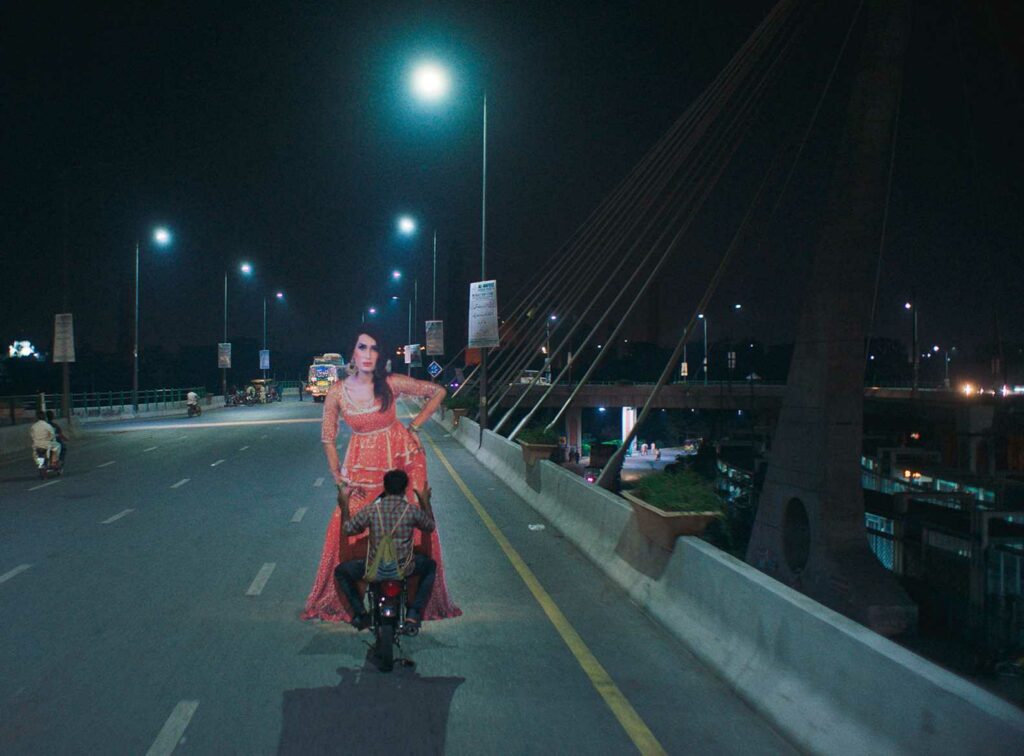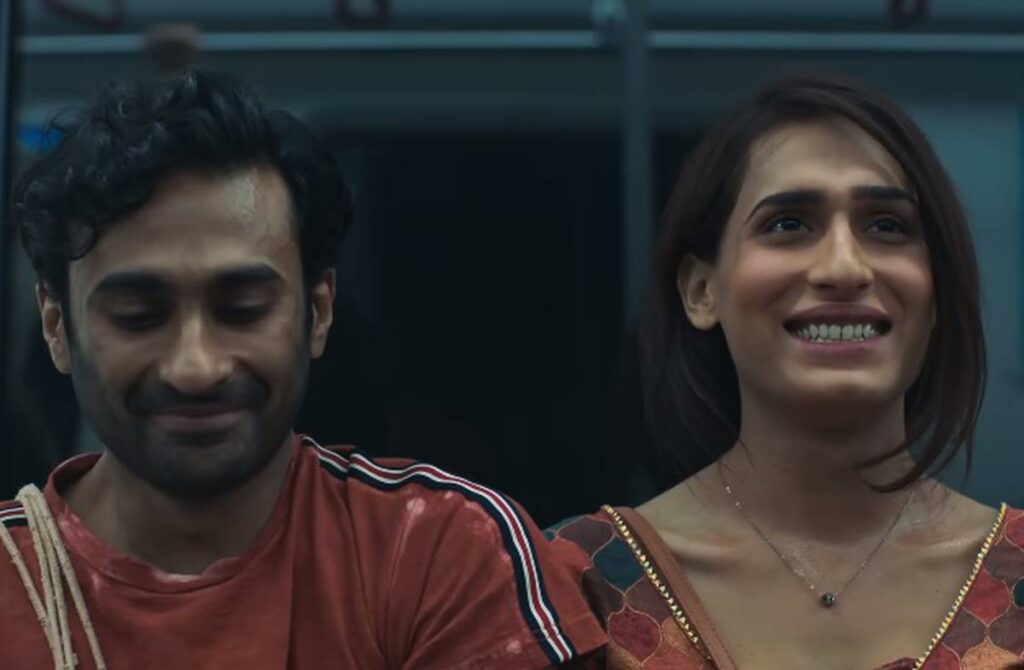In many ways, Saim Sadiq’s astute debut Joyland feels like a miracle. As a story celebrating LGBTQ+ values coming from a country as infamously hard-pressed on such principles as Pakistan is, it’s bafflingly unorthodox that Joyland could even exist. It was woefully shut out and dismissed; banned by the government before protest and uproar allowed a release – a heavily censored one at that, mind you. But the film, surprisingly, isn’t the crude statement or act of objection against their superfluous laws we’ve been led to believe. Rather, it’s a tender and complex story of the human condition – making the controversy all the more infuriating, as it’s the contemporary invigoration of love and sexuality that the country sorely needs to see.

Abba (Salmaan Peerzada) and his extended family reside in Lahore, not too far from a theme park called Joyland (a candy-coloured haven shot with vivid neons and fluorescent purples that are just bursting from the screen). To him, success is measured by employment and family; his son Saleem (Sohail Sameer) is passing with flying colours while Haider (Ali Junejo) – unemployed, childless, and whose wife is the breadwinner – is a disappointment. Haider reluctantly accepts a job as an erotic backup dancer to boost his societal standing but begins to fall in love with the show’s transgender star Biba (Alina Khan). And so when his wife Mumtaz (Rasti Farooq) falls pregnant, and the patriarchal system begins stifling her own sense of self and worth, Haider has to confront some hard truths about his identity and values.
The title is something of a misnomer; as Sadiq delicately weaves the threads of this family together, it quickly becomes apparent there’s little joy to be found here. As they navigate the no man’s land of Pakistan together, both suffocated by traditionalist principles and a society that doesn’t treat them kindly as individuals, let alone as a couple, Haider and Biba find respite with one another. But it’s at the expense of the happiness of those around them, like Mumtaz and Abba. There are no easy answers and the script gives room for every character to explore their moral conundrums.
Joyland tackles taboo ideas of identity and desire with a great deal of nuance. It’s not black-and-white and there isn’t a tragic character here to take the fall, nor one to put on an antagonistic pedestal; the writing makes each individual feel like a tangible human being, all of whom are going through their own things. The film is anchored by brilliant, nuanced performances from an ensemble at the top of their form – it’s all so real.

Joyland is an undeniable milestone in South Asian cinema for what it has to say and how it says it. And at a time when transgender rights are firmly in the public discourse globally, its tender approach to the subject feels more relevant than ever. But what elevates it beyond the sum of its parts is the fact that it’s a great film about love and family and the ties we have to what we know; familiarity is easy, if never always right. The Rana family are relatable – a scrappy, go-getter group bound to one another by more than blood – and the script makes room for their warmth and wit. Cinematographer Joe Saade lenses this with colour and verve and Sadiq’s assured directorial hand asserts him as a filmmaker to watch. It may sometimes juggle too much for its own good, narratively and thematically, but this is a film as beautiful as it is important and it’ll certainly go down as one of the more impressive debuts of recent years.
Joyland releases in UK cinemas from February 24th.
